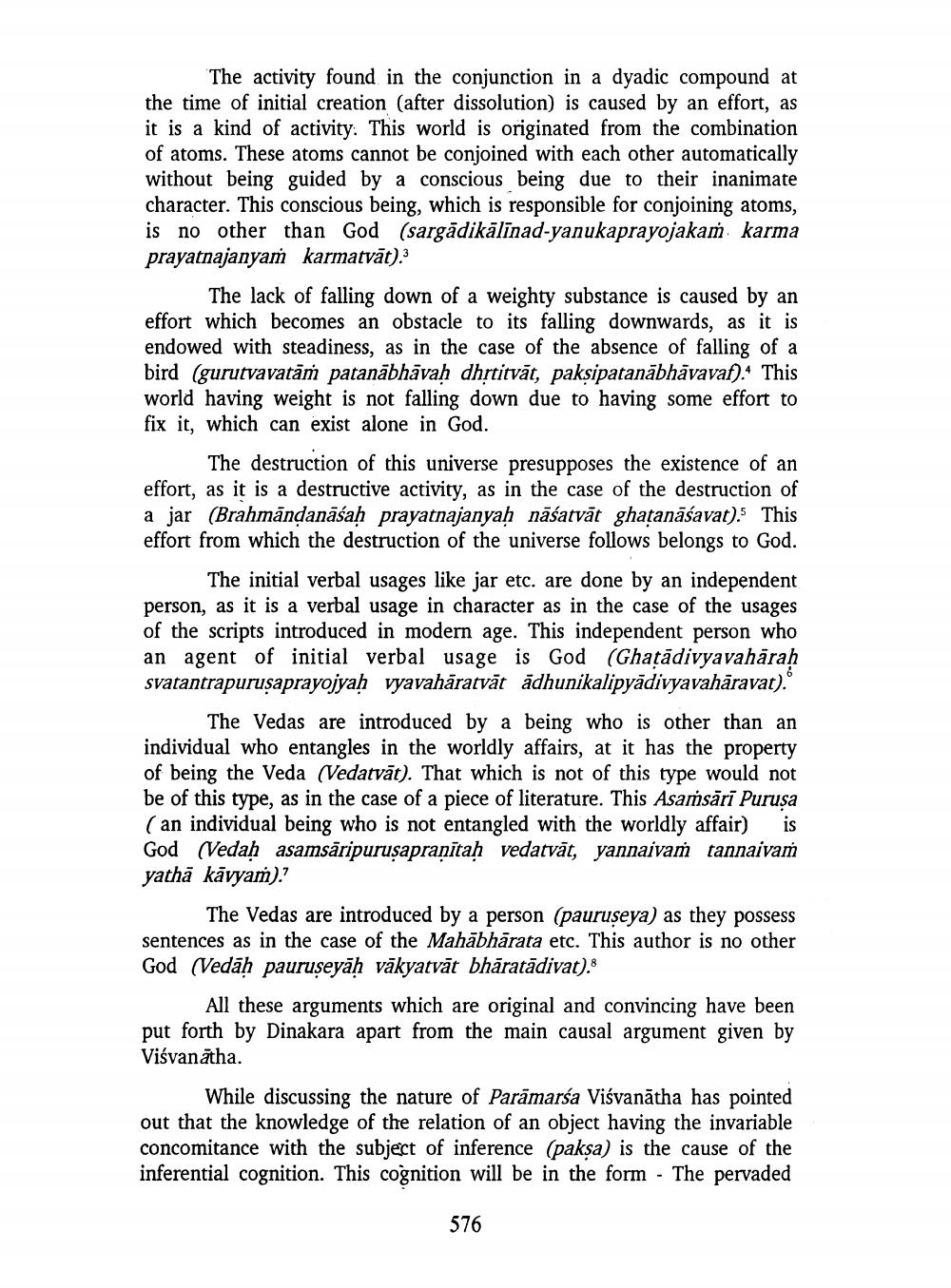________________
The activity found in the conjunction in a dyadic compound at the time of initial creation (after dissolution) is caused by an effort, as it is a kind of activity. This world is originated from the combination of atoms. These atoms cannot be conjoined with each other automatically without being guided by a conscious being due to their inanimate character. This conscious being, which is responsible for conjoining atoms, is no other than God (sargādikālīnad-yanukaprayojakaṁ karma prayatnajanyaṁ karmatvāt).
The lack of falling down of a weighty substance is caused by an effort which becomes an obstacle to its falling downwards, as it is endowed with steadiness, as in the case of the absence of falling of a bird (gurutvavatām patanābhāvah dhrtitvāt, paksipatanābhāvavaf). This world having weight is not falling down due to having some effort to fix it, which can exist alone in God.
The destruction of this universe presupposes the existence of an effort, as it is a destructive activity, as in the case of the destruction of a jar (Brahmandanāšah prayatnajanyah nāśatvāt ghatanāśavat). This effort from which the destruction of the universe follows belongs to God.
The initial verbal usages like jar etc. are done by an independent person, as it is a verbal usage in character as in the case of the usages of the scripts introduced in modern age. This independent person who an agent of initial verbal usage is God (Ghatādivyavaharah svatantrapurusaprayojyah vyavahāratvāt ādhunikalipyādivyavahāravat).
The Vedas are introduced by a being who is other than an individual who entangles in the worldly affairs, at it has the property of being the Veda (Vedatvāt). That which is not of this type would not be of this type, as in the case of a piece of literature. This Asaṁsārī Purusa ( an individual being who is not entangled with the worldly affair) is God (Vedah asamsāripuruşapranītaḥ vedatvāt, yannaivaṁ tannaivam yathā kāvyam).
The Vedas are introduced by a person (pauruseya) as they possess sentences as in the case of the Mahābhārata etc. This author is no other God (Vedah pauruseyāḥ vākyatvāt bhāratādivat).
All these arguments which are original and convincing have been put forth by Dinakara apart from the main causal argument given by Viśvanātha.
While discussing the nature of Paramaría Visvanātha has pointed out that the knowledge of the relation of an object having the invariable concomitance with the subject of inference (paksa) is the cause of the inferential cognition. This cognition will be in the form - The pervaded
576




